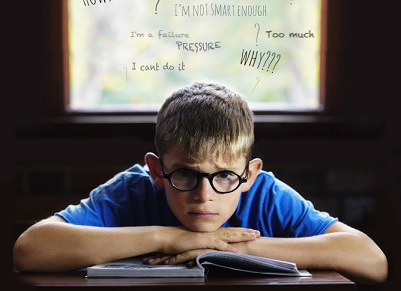
Any school that prioritizes pastoral care concerns should be applauded but I am not convinced ‘Failure Week’ is the answer. Part of the program includes broadcasting throughout the school, admissions from all the teachers of failures in their own lives.
It was reported that the teachers were wary of this aspect of the program. This is understandable as teachers have more and more become scapegoats for a multitude of sins.
This exercise in self-flagellation may humble and somehow humanize the teachers but there are issues of boundaries and privacy which are concerning.
Confessions may include my failure to qualify for Law and I had to settle for Teaching, to my dream of becoming a supermodel which founded because of my failure to control my weight.
The whole exercise smacks of a publicity stunt which may or may not attract new enrolments. Independent schools must fight to find a winning selling point and some prospective clients might be attracted to a school which does not seem to promote academic excellence as the be-all and end-all of their curriculum.
What is more critical is investigating the root of this poor self-esteem such that students are afraid of failure and risking embarrassment by answering a question incorrectly.
Failure is an arbitrary label which must be taught and learnt.
Toddlers learning to walk and talk have no sense of failure. Despite multiple attempts and mishaps, they will persevere and will master challenging and complicated skills without coming out the other end feeling like failures.
Not succeeding at the first attempt should never be viewed as failure. Only poor parenting and poor teaching will convince students that they have failed. Corrupted by the ultra-competitive under-pinnings of capitalism, education adopted the worst excesses of the system and emphasised assessment and screening above learning.
At the end of twelve years, a student’s achievement could be summarized in a double-digit Tertiary Entrance Score. Throughout their schooling, students are constantly measured and ranked. They quickly learn where they sit and are ‘Nap-lanned’ into percentile rankings.
Meanwhile schools wall-paper their classrooms with posters exhorting students to reach for the stars. If you want to be a Nobel Prize winner, it’s there for the taking if you work hard enough. Train hard and you can make the Australian team!
Reaching for the stars can easily mean that I see myself as a failure if I do not realise my dream. A student who works very hard and is awarded a ‘C’ may deserve more accolades than a naturally gifted student who accumulates ‘A”s with comparative ease.
Yet rarely will the ‘C’ grader be recognised at Speech Nights or praised on School Reports. They will be encouraged to try harder when there is little room in the tank for more effort. They will be more likely to view themselves as failures. The irony is then that schools are confronted with a problem of their own making.
Some schools have attacked the problem by boasting that they are schools without failure. Teachers must not use red pens for correction, Student Reports must be always positive and every student will win a ribbon at the sports. The problem with this approach is that students are not stupid. They are being short-changed by not giving them accurate and truthful feedback.
The issue is not so much about a sense of failure. The focus should be on training children to be resilient, not to give in so easily. Teach them that, like toddlers, it is acceptable to try and try again. That doesn’t mean they are failures. It means that they are human.
Encourage them to experience setbacks. Get them into sports teams where they will have to experience heart-breaking grand-final losses. Don’t race to comfort them when they fall which they inevitably will when they are trying to walk their way through life. Welcome opportunities for children to learn from their mistakes.
They will only be failures if we label them so!
Greg Cudmore is a retired teacher with 45 years of experience of teaching in Victoria and Queensland.
Related Stories:
School’s ‘design to fail’ philosophy proving to be a success
Opinion: Damn the expense!


